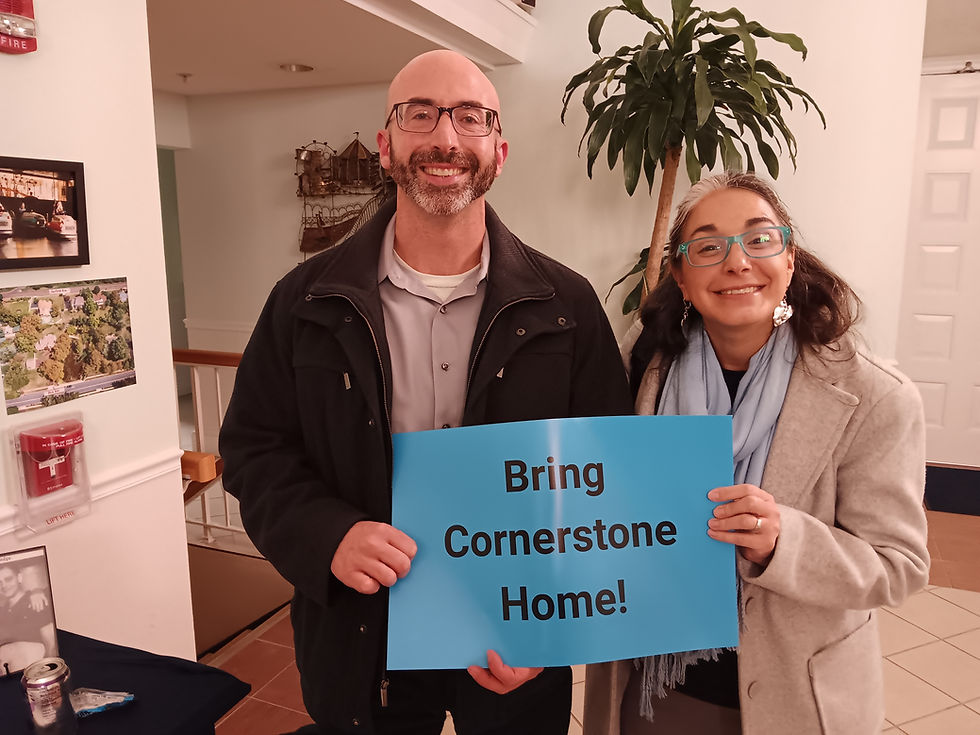Five Books I Loved This Year
- Michael Hays
- Dec 28, 2023
- 3 min read
As we wind down the year and prepare to celebrate the Montco 30% Project’s first anniversary next month, I thought I would share a few reads that inspired my work in 2023.
Leave some of your recent favorites in the comment section.

Guzman’s title really sums up this quick read well. A former Seattle-based journalist whose parents voted for Trump in 2016, Guzman implores her readers to engage with those who hold opinions that are the opposite of our own worldview and even values. With compassion and curiosity as our tools, she believes that a path forward is possible for Americans but only if we suspend our desire to “win” every argument and – instead – try to understand the paths other people walk that have informed their positions.
Excluded : how snob zoning, NIMBYism, and class bias build the walls we don't see by Richard Kahlenberg (2023)
This might be my favorite book of the past year. I wrote a post a few months back about Kahlenberg’s precise and readable analysis – a must for anyone who wants to help reverse exclusionary housing policies in our county and state.
The upswing : how America came together a century ago and how we can do it again by Robert Putnam (2021)
Putnam, who is perhaps best-known for his best-seller Bowling Alone, delivers another sharp social critique. With thorough research from co-author Shaylyn Romney Garrett, The Upswing posits a thesis that much of American history follows a familiar “I-We-I” curve. We thrive together when we emphasize fairness and the collective public good in our policies. Conversely, when we stray from these values, people suffer and income inequality, segregation, and opportunity-hoarding rise.

Evicted by Matthew Desmond (2016) follows the journalist around the city of Milwaukee, where he spends time with slumlords, the working poor, single mothers, and other citizens who struggle to keep themselves housed.
The New Republic wrote: “A shattering account of life on the American fringe, Desmond’s Evicted shows the reality of a housing crisis that few among the political or media elite ever think much about, let alone address.”
Poverty, by America by Matthew Desmond (2023)

Desmond followed up that Pulitzer-winning book with Poverty, by America, which was released in 2023. Desmond once again weaves together brilliant narrative, eye-popping statistics, and story-telling that cannot help but leave you wanting to change the status quo.
A few of my favorite excerpts are below:
On rent increases:
“The data also show that rental revenues have far outpaced property owners’ expenses in recent years, especially in multifamily properties located in poor neighborhoods. Rising rents are not simply a reflection of rising operation costs. There’s another dynamic at work, one that has to do with the fact that poor people – and particularly poor Black families – don't have much choice when it comes to where they can live. Because of that, landlords can overcharge them, and they do.”
Since 1985, rent increases have outpaced wage gains by 325 percent (!!)
“Inflation in housing”
A 2019 study by the Federal Reserve Bank of Philadelphia found that when states raised minimum wages, families initially found it easier to pay rent. But landlords quickly responded to the wage bumps by increasing rents, which diluted the effect of the policy. This happened after the COVID-19 rescue package, too, but commentators preferred discussing the matter using the bloodless language of inflation.
On zoning and exclusion:
“You can learn a lot about a town from its walls. Our first walls were primitive things: sharpened tree trunks, mud and stone. We learned to dig trenches and build parapets. Someone in the American West invented barbed wire. Today, we fashion our walls out of something much more durable and dispiriting: money and laws.
Zoning laws govern what kinds of properties can be built in a community, and because different kinds of properties generally house different kinds of people, those laws also govern who gets in and who does not. Like all walls, they determine so much; and like all walls, they are boring.
There may be no phrase more soulless in the English language than “municipal zoning ordinance.” Yet there is perhaps no better way to grasp the soul of a community than this.”
.png)



Comments